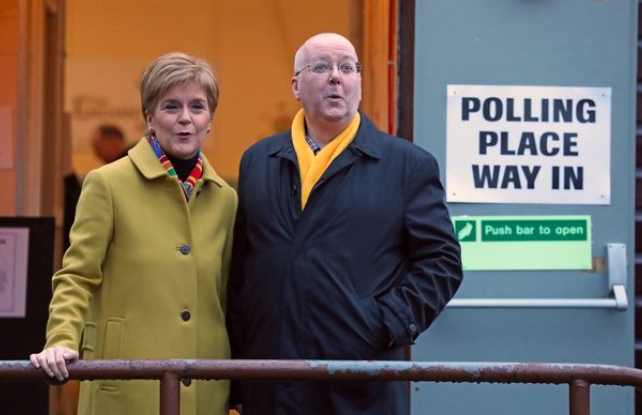Former SNP MSP advocates for joining EFTA instead of EU
Alex Neil, a former SNP MSP and cabinet secretary, has called for an independent Scotland to join the European Free Trade Association (EFTA) instead of the European Union (EU). He argued that this would avoid creating a hard border between Scotland and the rest of the UK, and would also give Scotland more control over its own affairs.
Neil, who stepped down as an MSP in May 2023, wrote an article for The National, a pro-independence newspaper, where he outlined his vision for Scotland’s future relationship with Europe. He said that joining EFTA would allow Scotland to access the European single market and the four freedoms of movement of people, goods, services and capital, without having to adopt the EU’s common policies on agriculture, fisheries, foreign affairs and defence.
He also said that EFTA membership would be easier and faster to achieve than EU membership, as it would not require Scotland to meet the EU’s convergence criteria or join the eurozone. He claimed that EFTA countries such as Norway, Iceland, Switzerland and Liechtenstein had expressed their willingness to welcome Scotland as a member, and that the UK government would not be able to veto Scotland’s application.

EFTA vs EU: A debate within the independence movement
Neil’s proposal is not a new one, as some pro-independence campaigners have been advocating for EFTA membership for years. However, it goes against the official policy of the SNP, which is to seek EU membership as soon as possible after independence. The SNP believes that EU membership is essential for Scotland’s economic and social prosperity, and that it reflects Scotland’s values and aspirations.
The SNP also argues that EU membership would not necessarily entail a hard border with the rest of the UK, as there are examples of border arrangements that minimise disruption and friction, such as the Common Travel Area between the UK and Ireland, or the Norway-Sweden border. The SNP also points out that EFTA membership would not give Scotland a say in the EU’s decision-making process, and that it would still have to follow many EU rules and regulations without being able to influence them.
The debate over EFTA vs EU is likely to continue within the independence movement, as different views and preferences emerge on how to best secure Scotland’s place in Europe. Some independence supporters favour a pragmatic approach that prioritises trade and cooperation with the UK, while others favour a more ambitious approach that seeks to fully integrate Scotland into the EU’s political and economic structures.
What is EFTA and how does it work?
EFTA is an intergovernmental organisation that was established in 1960 as an alternative to the European Economic Community (EEC), the predecessor of the EU. Its original members were Austria, Denmark, Norway, Portugal, Sweden, Switzerland and the UK, but most of them left to join the EEC or the EU over the years. Today, EFTA has four members: Norway, Iceland, Switzerland and Liechtenstein.
EFTA’s main objective is to promote free trade and economic integration among its members and with other countries. EFTA has a network of free trade agreements with over 40 countries and territories around the world, including Canada, Mexico, South Korea and Singapore. EFTA also manages the European Economic Area (EEA) agreement, which allows Norway, Iceland and Liechtenstein to participate in the EU’s single market. Switzerland is not part of the EEA, but has a series of bilateral agreements with the EU that cover various sectors and issues.
EFTA has a minimal institutional structure, consisting of a council, a secretariat, a court and a surveillance authority. The council is the highest decision-making body, where representatives of the member states meet to discuss and decide on EFTA’s policies and activities. The secretariat provides administrative and technical support to the council and other EFTA bodies. The court and the surveillance authority ensure that the EEA agreement is respected and enforced by the EFTA states and the EU.
EFTA is not a supranational organisation, meaning that it does not have any authority or power over its member states. EFTA decisions are taken by consensus and are not legally binding, unless they are incorporated into national law. EFTA states retain their full sovereignty and independence, and can pursue their own interests and policies in areas that are not covered by EFTA or EEA agreements.


















